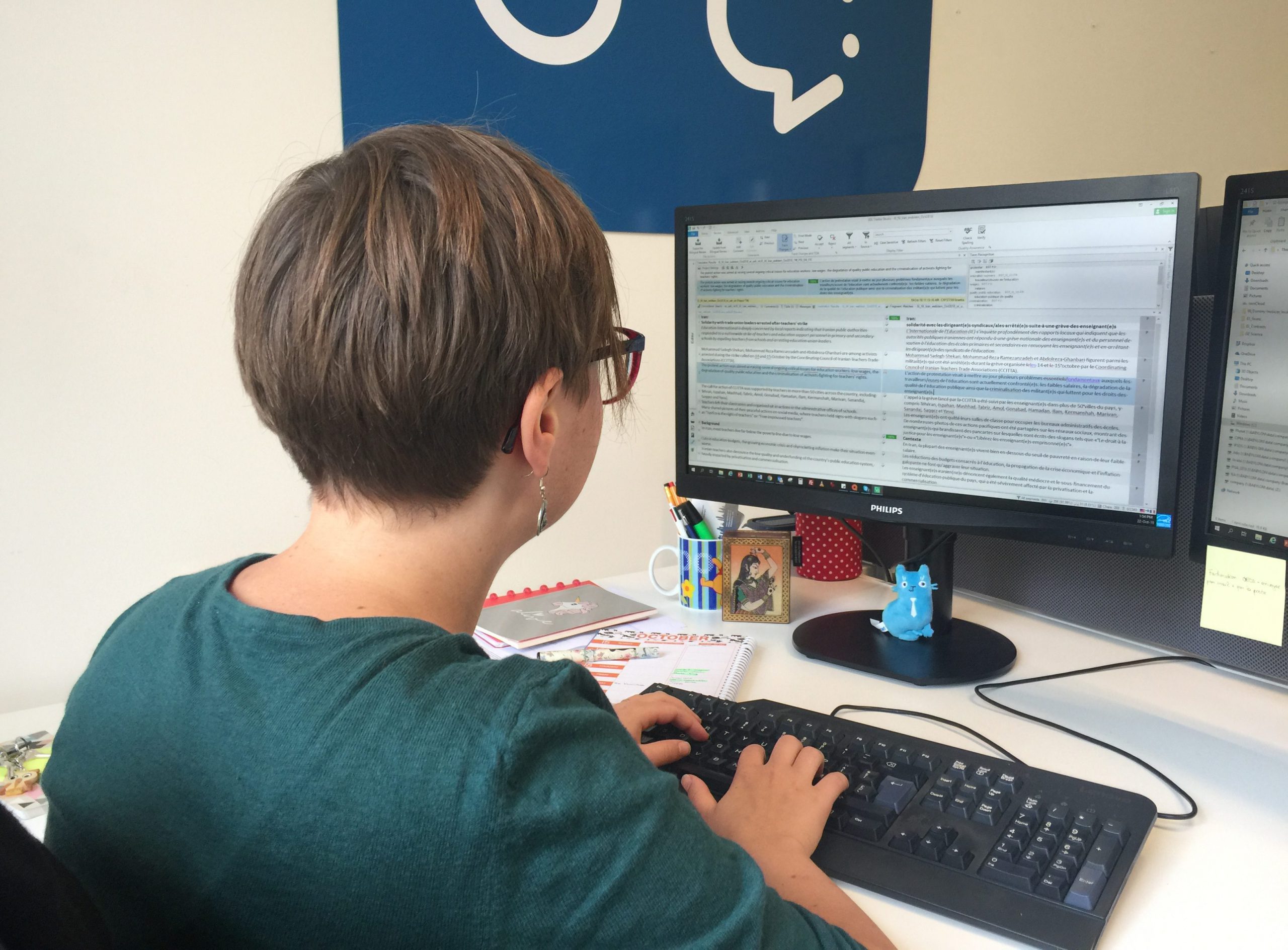
International Translation Day celebrates the key role of translators in connecting the world. Time now to give the profession a legal protection
by Danina Lupsa – Translation technologist and translation project manager @ cApStAn
On September 30, my young colleagues and I woke up to discover a Facebook post from our company on a topic we had never heard about: International Translation Day. It was the perfect occasion for young translation studies graduates, senior translators and language experts at cApStAn to come together during a break and discuss the evolution of our work.
Two-three years ago, most of my colleagues from cApStAn Translate and myself had finished our studies. After years of hard work on university benches, with a translation degree in our pockets, we had the impression the world of languages was waiting for us to conquer it. Were we aware of the market’s reality? Were we prepared for making our first steps in the world of business? Not in the least. Our illusions where shattered quite quickly when we discovered that there is no regulation to protect the translator’s status in Belgium.
There are of course professional associations at a national level (e.g. Belgian Chamber of Translators and Interpreters, CBTI) and federations at an international level (e.g. the International Federation of Translators, IFT) who try to protect translators, interpreters and terminologists. Paragraph 23, Section III of the Translator’s Charter approved by the IFT stipulates that “The translating profession, like other professions, shall enjoy in every country a protection equal to that afforded to other professions in that country, by collective agreements, standard contracts, etc.” There is unfortunately no legal obligation to respect the Charter. It is surprising for a country like Belgium promoting multilingualism and hosting some of the world’s most fundamental international organisations not to protect the players enabling a part of its existence. The harsh reality is that it doesn’t. Our diploma wasn’t worth too much in the language industry: anyone who speaks more than one language can declare himself or herself a translator. So why had we studied for 5 years?
I must admit we are part of the lucky few, those who find a job in a company, which offers the opportunity to translate, manage projects, employ new technologies, research, develop and express themselves. But what if we hadn’t? How many translation graduates actually work in the sector? The truth is, not so many. While I was a student, I remember my teachers saying that most of us would not become translators. They mentioned that our studies opened many different doors: tourism, banking, communication, event management, that we had the possibility to work in state departments thanks to our Master’s degree. Personally, I couldn’t imagine doing something else than translation. We were then warned that if we really wanted to become freelance translators, we should think about being competitive, applying fuzzy matches and reduced rates, investing in CAT tools and being asked to use reference materials sent by clients which were below our own quality standards. I didn’t understand half of the words used, because my training in multidisciplinary translation only included 1 course about computer assisted translation (CAT) where I had the opportunity to use for a few weeks one of the commercial CAT tools. To say I was ill-equipped is an understatement. Fortunately, our studies include an internship of 3 months, but not necessarily in a LSP company. The only requirement is that some of the tasks students perform have a link with their studies. For me, it was the opportunity to learn new technologies. For some of my fellow classmates it was a chance to discover the world of banking.
We didn’t become freelancers. We sit today on the other side of the bench and put on our project manager/translation technologist and sometimes translator’s hat and we see the effects of everything we were warned about on the quality of a translator’s work. Every day we receive fake CVs from linguists who are capable of translating from and into four-five languages, who are available 24h a day and translate between 4,000 and 4,500 words at 0.03 EUR/source word. We know that professional translators only translate into their native language, handle about 2,000-2,500 words a day and also need to sleep at night and require a decent remuneration to pay their bills, but not everyone does. We know those CVs are fake, or if they are real the output will not correspond to our company’s quality standards.
It is important to celebrate linguists and recognize and respect their work. It is also high time we equip them with the appropriate tools to enable them to work and live in decent conditions. We could perhaps start by formally protecting them in a constantly evolving world where technology is one of the most prominent players?